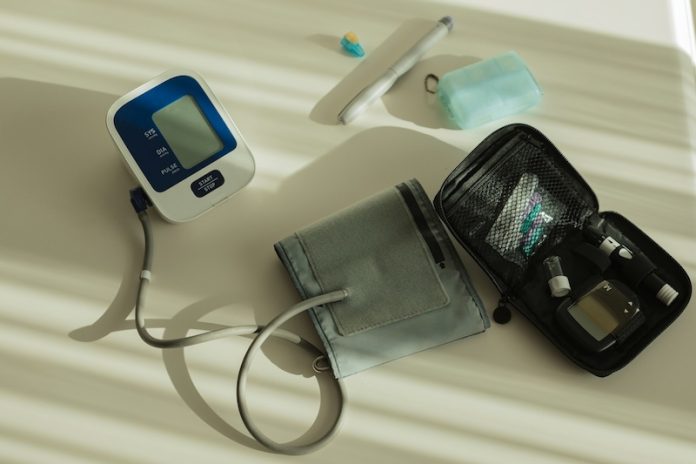
A recent study from the University of Maine has found that B vitamins might be a helpful way to lower high blood pressure, especially for people whose blood pressure doesn’t respond well to regular medicine. The study suggests that B vitamin supplements can reduce a substance in the blood called homocysteine, which may play a role in keeping blood pressure high.
High blood pressure, or hypertension, affects millions of people around the world and increases the risk of heart attacks, strokes, and kidney disease. For some people, even taking several blood pressure medicines doesn’t solve the problem.
About 1 in 8 people have what’s called drug-resistant hypertension. That means their blood pressure stays too high even after trying at least three different medications.
The challenge of controlling blood pressure has become even greater in recent years. Health guidelines now define high blood pressure as anything over 130/80 mmHg, instead of the older standard of 140/90. This means more people are now considered to have hypertension and need effective treatment options.
This new research focuses on homocysteine, a natural chemical in the body that is created during metabolism. While it’s a normal part of how the body works, too much of it in the blood can cause problems.
High homocysteine levels can make blood vessels stiff and narrow, which makes it harder for blood to flow and raises blood pressure. It can also increase the risk of heart disease and stroke.
Homocysteine levels can rise because of genetics or a lack of certain vitamins—especially B vitamins like B6, B12, folate (B9), and riboflavin (B2). The good news is that homocysteine levels can be lowered in a simple, safe, and inexpensive way: by taking these B vitamin supplements.
The study reviewed earlier research and found that taking B vitamins could lower blood pressure by 6 to 13 mmHg. That kind of drop could make a big difference for people with high blood pressure, especially those who haven’t had success with regular medications.
For example, reducing blood pressure by even a few points can lower the risk of stroke and heart problems.
The researchers also noted a problem with how labs measure homocysteine. The current recommended level is 10 micromoles per liter (μmol/L) or lower, but many labs still use 11.4 μmol/L as the cut-off for “normal.”
The scientists believe this number is too high and could lead to missed opportunities for early treatment. They suggest lowering the “normal” range so that more people can be treated before their health worsens.
Still, the researchers warn that B vitamin supplements should not be used on your own without talking to a doctor. While they are generally safe, the right dosage and type of vitamins can vary for each person, especially for those with other medical conditions or who are already taking medications.
This study, led by Dr. Merrill Elias and published in the American Journal of Hypertension, shows that B vitamins could be a useful and affordable addition to current blood pressure treatments. For people who struggle with drug-resistant hypertension, this approach could offer a new way to manage their condition and improve their overall health.
If you care about blood pressure, please read studies that black licorice could cause dangerous high blood pressure, and this common plant nutrient could help reduce high blood pressure.
For more information about blood pressure, please see recent studies about how coffee influence your risk of high blood pressure, and results showing this olive oil could reduce blood pressure in healthy people.
Copyright © 2025 Knowridge Science Report. All rights reserved.



